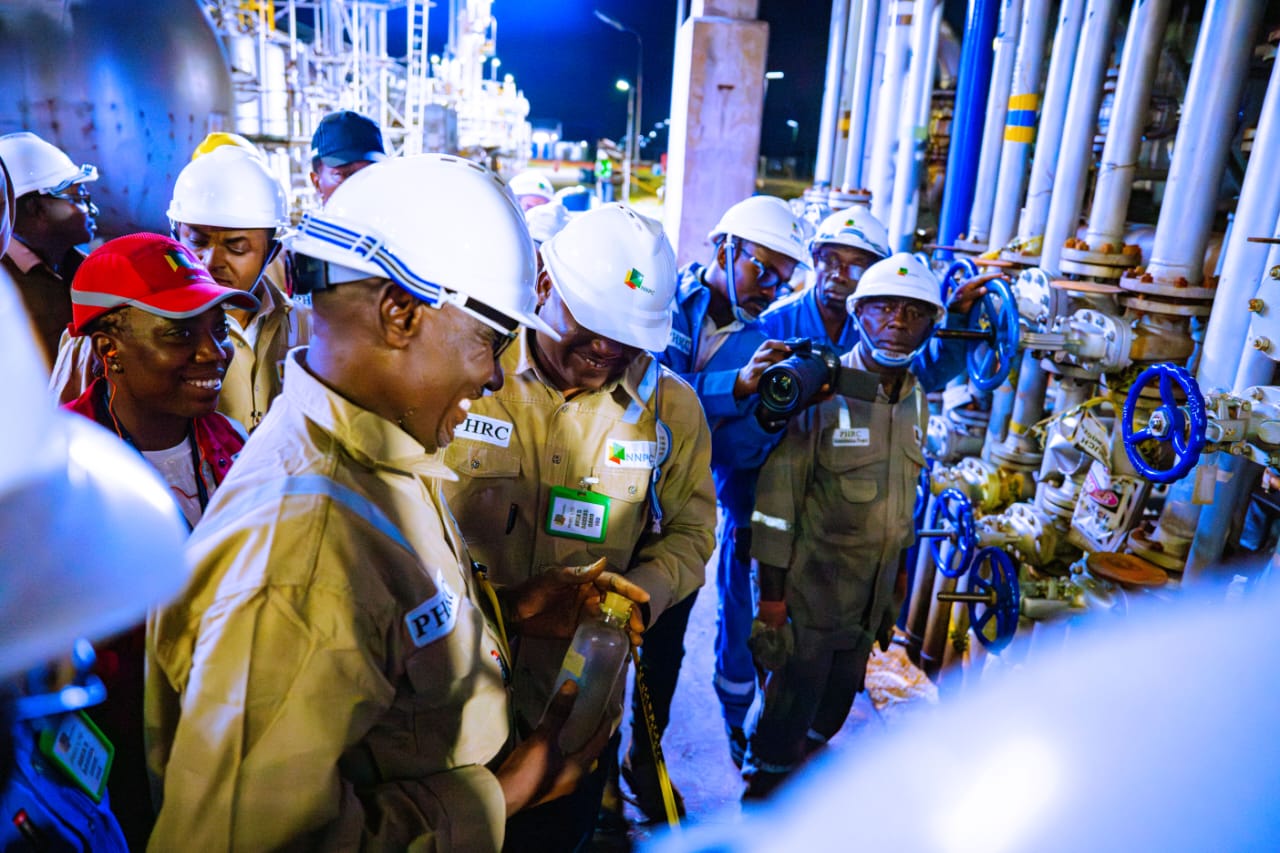For decades, the Benin Bypass and the East-West Road, major arteries connecting the South-South and Southwest regions of Nigeria, have been a nightmare for commuters. The roads, pivotal for economic activities, linking oil-rich Delta State with Edo State and beyond, have been plagued by years of neglect, turning what should be smooth transit into treacherous journeys. However, recent repair efforts on these critical highways are rekindling hope for travelers, traders, and transport operators who have borne the brunt of the infrastructural decay.
The Benin Bypass, constructed to ease traffic congestion in Benin City, had, over time, turned into a deathtrap, with potholes, erosion, and overgrown vegetation reducing its capacity to serve its intended purpose. The East-West Road, spanning from Edo State through Delta to other Niger Delta states, faced similar challenges. Persistent rainfall, poor drainage systems, and heavy vehicular activity, especially by tankers and trucks servicing Nigeria’s oil industry, had left the road in a state of disrepair.
“I have been plying this road for over 15 years,” says Mr. Adewole Akinrinade, a commercial truck driver. “It used to take us three hours to get from Benin to Warri, but with the state of the road, we now spend up to six or seven hours, especially during the rainy season. It’s been a real struggle.”
This deterioration did not only impact travel time but also resulted in increased vehicle maintenance costs, accidents, and, tragically, loss of lives. Communities along the axis, like Okada in Edo and Oghara in Delta, have also suffered economically, as travelers and transporters sought alternative routes, bypassing businesses in these areas.
However, smooth journey beckons for travelers across the edo/delta axis as Benin bypass and east-west road are currently undergoing repairs. This is as the Niger Delta Development Commission (NDDC) has commenced emergency repairs of the failed sections of the East-West Road, between Warri in Delta State and Benin in Edo State.
The commission said the repair would concentrate on the dilapidated sections along Ibadulume, Amukpe round-about, Mosoga and Ologbo.
The NDDC Managing Director, Dr Samuel Ogbuku, inspected the ongoing repairs alongside the Executive Director of Projects, Victor Antai and other directors,
In a statement issued by the NDDC Director of Corporate Affairs, Mrs Seledi Thompson-Wakama, the Managing Director said following the directive by President Bola Tinubu, the commission mobilised to the site for quick intervention.
The NDDC boss said: “Following a presidential directive to urgently intervene to restore the dilapidated sections of the East- West Road, the NDDC has quickly mobilised a civil engineering firm to carry out remedial works to ensure that the people do not suffer unnecessary pains and gridlock while construction work by the main contractor is going on.”
He commended the Federal Government for acting promptly on media reports and people’s outcries to re-award the contract for the road project after a long period of abandonment.
In a similar vein, Edo State Governor, Senator Monday Okpebholo, penultimate Monday, inspected some ongoing road construction and repairs in the State Capital, Benin City. Interestingly, the Governor visited Upper Mission Road Extension by Aduwawa junction, Obadan junction, and Benin-Auchi Express Way, which invariably connect the Benin Bypass to ascertain the level of work done since contractors were mobilised to sites.
Okpebholo noted that the failed portions of the road networks have made life unbearable for residents and traders alike in the area, and assured them that his administration is ready to work round the clock to fix the road and make Edo people happy.
He said the mandate of his administration is to transform the State and promised Edo people that he will key into the President Bola Ahmed Tinubu Renewed Hope Agenda and make life better.
“The failed portion at Upper mission extension road was terrible, and last week, I came to look at the rate of damage as vehicles found it difficult to pass the road. Businesses and people around this area are suffering.
“My administration is determined to solve the problem and put smiles on the faces of the people.
“The President is not happy the way Edo is, and you can see that we are already working as he will join us to fix Edo State and that we must surely accomplish.”
Describing the Obadan road as very important and strategic to the State, Governor Okpebholo said when the road is fixed, it will boost commerce and industry and open up the State for economic growth and development.
“This road is very important to us. It leads to Agbor, Onitsha, and Northern parts of the country. The road is very strategic to us as a State. It is located in Edo State, and it is important as it will boost the economy of the State.
“Looking at the state of roads, I have to key into Mr. President’s Renewed Hope Agenda, as we are not going to stop. We have already started working. Our mandate is to transform Edo State and make it a place that we all will be proud of.
“We assumed office about six days ago, and we have hit the ground running and will continue to work as we are flagging off flyovers in Edo State. It is work, work, and more work for my administration,” he noted.
The repairs involve resurfacing damaged sections, reinforcing drainage systems, and erecting new signage to enhance safety. In some areas, diversions have been created to ensure traffic flow during the reconstruction process, albeit with some inconvenience to travelers.
For many road users, the ongoing repairs would unarguably offer a glimmer of hope to traders like Mr. Alfred Eze, who said he frequently transports goods from Ekpoma to Benin, and noted that putting the road in good shape would no doubt engender commendable improvements.
“Last week, I drove through the Benin Bypass and was surprised to see how much work has been done. It is not perfect yet, but it is far better than what it used to be. At least I did not have to spend hours in a standstill traffic caused by bad spots,” he said.
Similarly, commercial bus operators, who have been at the forefront of complaints about the road, are optimistic about the changes. “If they complete this work, it will reduce the time and stress we face every day,” noted Mr. Felix Etuk, a driver with a popular interstate transport company. “But we hope they won’t abandon it halfway like they’ve done in the past.”
This skepticism stems from a history of unfulfilled promises. Past administrations have flagged off similar projects with much fanfare, only to abandon them midway, leaving the roads worse off.
The repairs, if completed, are expected to have a transformative impact on the region. Economically, the improved road network will reduce transportation costs, facilitate the movement of goods and services, and attract investors to communities along the route.
“For us in the hospitality business, the condition of these roads directly impacts our patronage,” said Mr. Ogheneovo Efemuaye, a worker in Warri. “When travelers avoid these roads, most traders along these corridors lose out on customers. This repair is long overdue, and we are hopeful that it will bring back more business to the area.”
Moreover, the repaired roads will enhance regional integration, providing a smoother link between the industrial hubs in Delta State and the commercial nerve centers in Edo. Socially, it will reduce the stress and insecurity that travelers currently endure.
While the repairs are commendable, stakeholders have emphasised the need for a sustainable approach to road maintenance. Nigeria’s road infrastructure often falls into disrepair due to a lack of regular upkeep and the absence of stringent weight limits for heavy-duty vehicles.
“Repairing the roads is good, but what happens after?” queried Mr. Ignatius Anyanwu, a transporter. “We need to enforce axle load regulations to prevent overloading and ensure that maintenance funds are not diverted. Without these measures, we’ll be back to square one in a few years.”
Communities along the route have also appealed for complementary infrastructure, such as rest areas and emergency services, to enhance the safety and comfort of road users.
As the repairs progress, there is cautious optimism that the nightmare of traveling the Benin Bypass and East-West Road will soon become a thing of the past. For now, travelers, traders, and transporters can only hope that the current momentum will be sustained and that the government’s promises of a smooth journey across the Edo/ Delta axis will finally materialise.
“It’s been a long time coming,” says Mr. Akinrinade, the truck driver. “We just want to see it finished this time.”
As Nigerians await the completion of these projects, the roads hold the promise of better days ahead, a promise that must not be broken again.

 2 hours ago
4
2 hours ago
4












